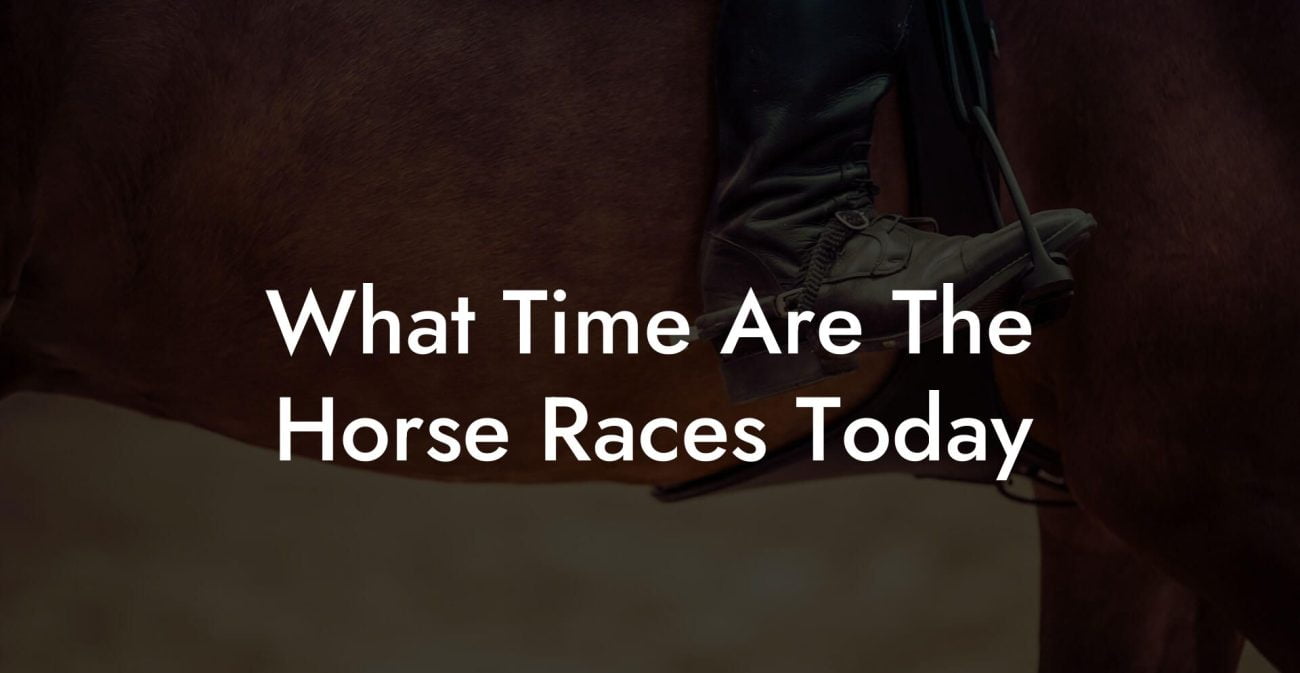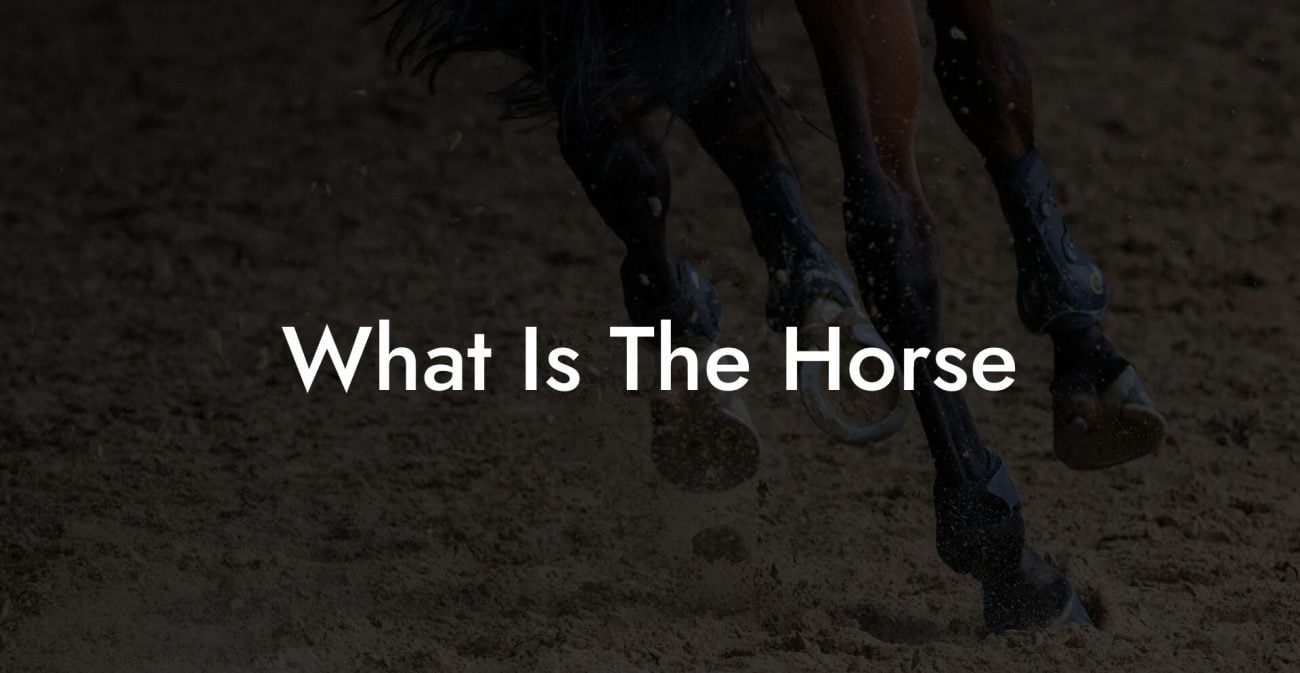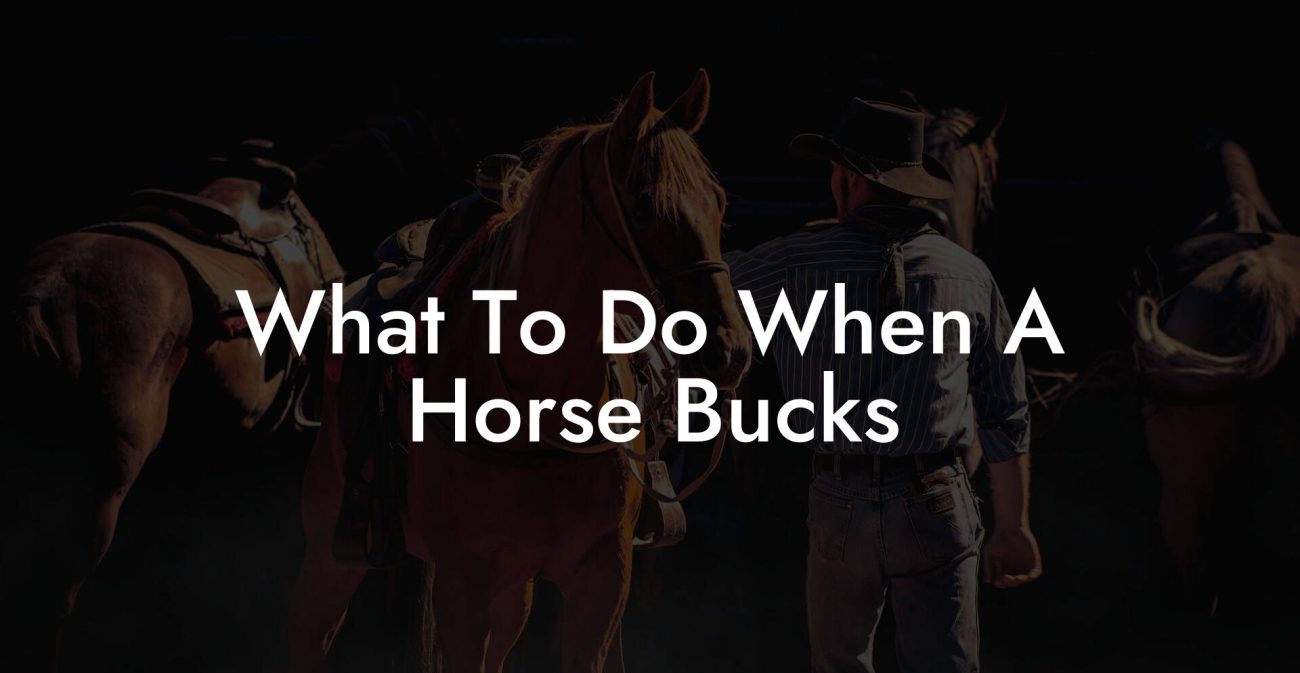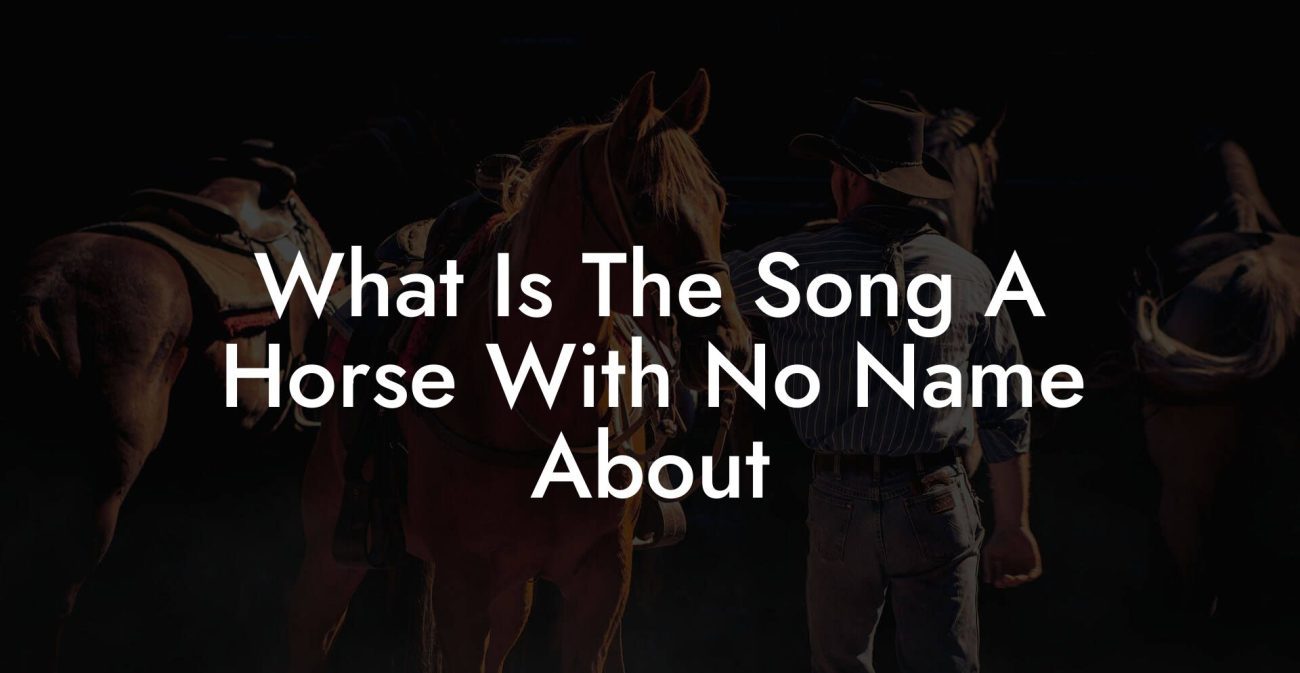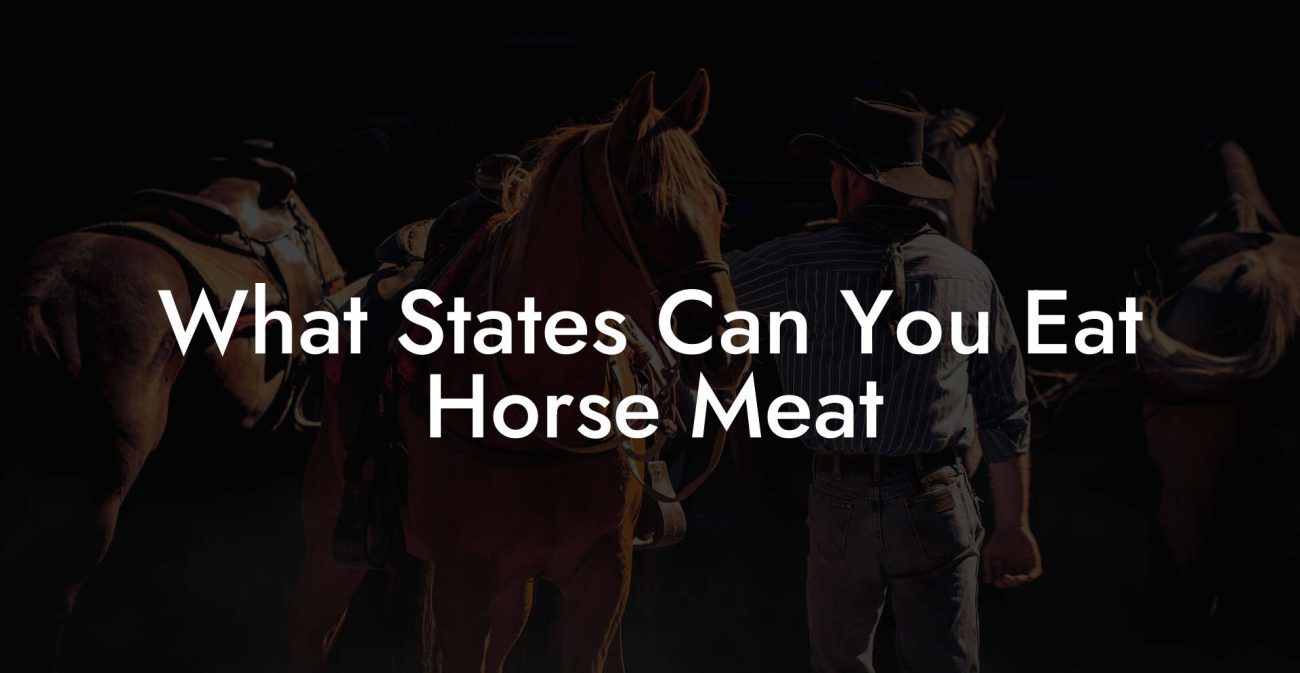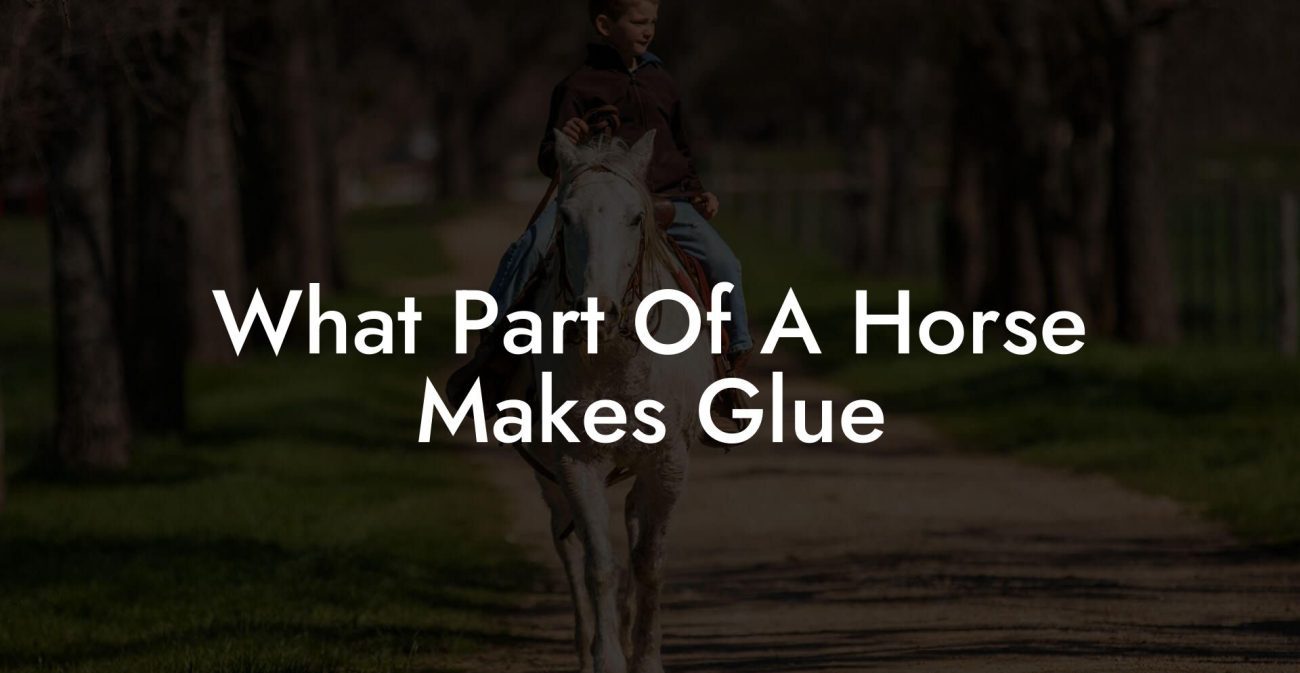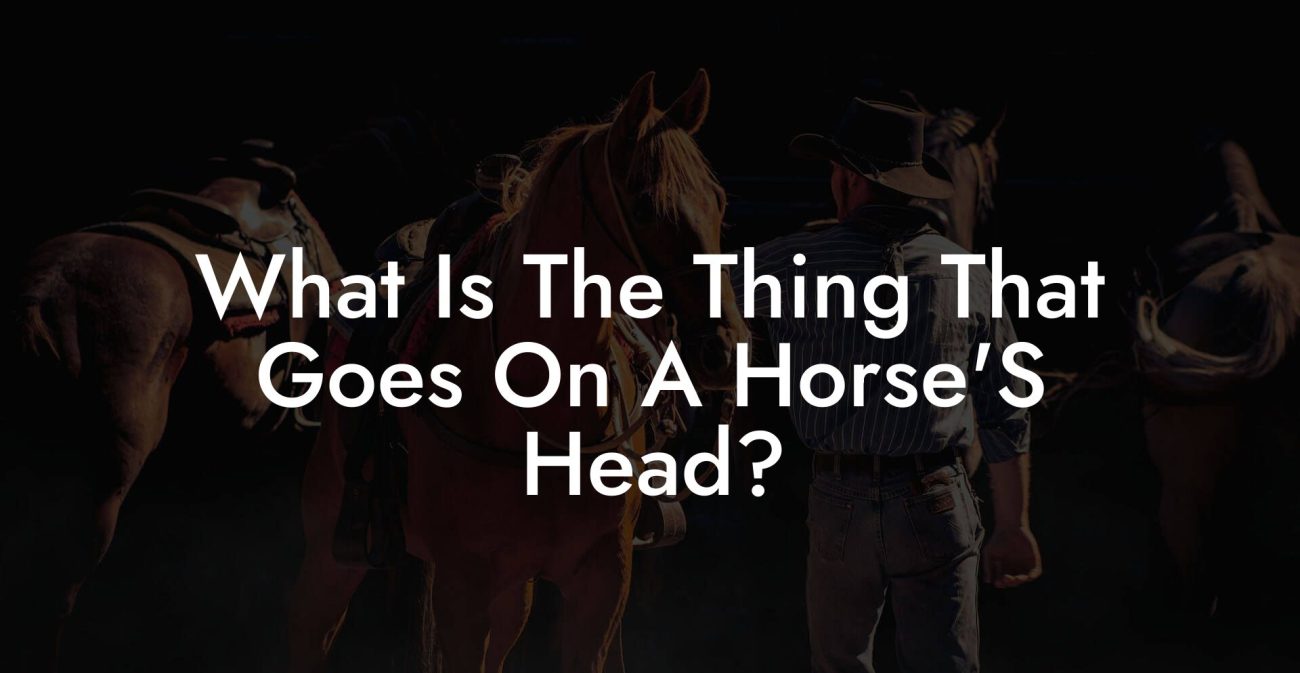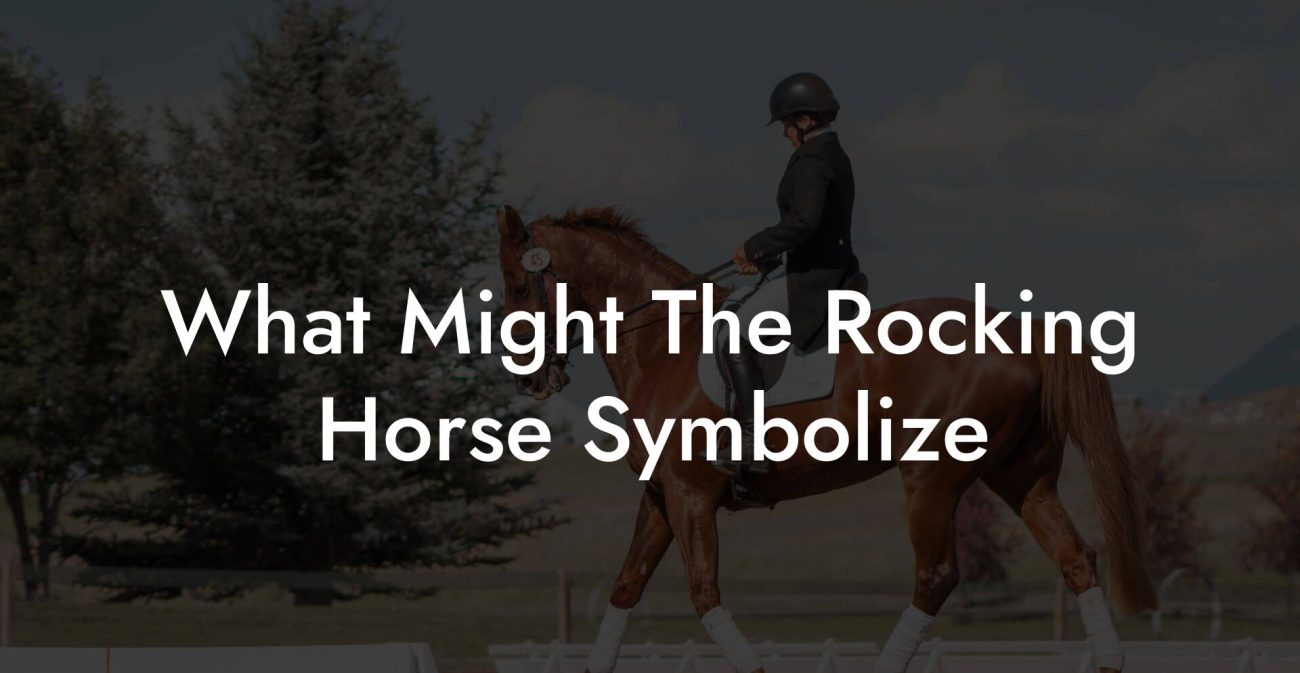Ready to swap your car keys for a saddle and ride into the sunset with your very own equine BFF? Buying a horse is not just a financial transaction, it’s an adventure full of passion, practicalities, and a dash of whimsy that would make even the most die-hard Gen-Z meme lord raise an eyebrow. Whether you're a millennial dreaming of pastoral Instagram posts or a Gen-Z equestrian influencer in the making, this guide will take you from scrolling through endless horse memes to confidently negotiating for your four-legged partner in crime.
Quick Links to Useful Sections
- Understanding the Equine Craze: Why Buying a Horse Is a Lifestyle Upgrade
- Know Your Needs: What’s Your Equine Dream?
- Setting the Budget: The True Cost of Your New BFF
- Where to Find Your Horse: From Breeders to Rescues
- Breeders
- Auction Houses
- Rescue Organizations
- Online Marketplaces and Forums
- Evaluating a Horse: What to Look For
- Negotiating Like a Pro: Seal the Deal on Your Dream Horse
- The Paperwork Parade: Legalities and Registrations
- Bringing Your Horse Home: Transition Tips and Initial Care
- After the Purchase: Essential Horse Care Tips for the Modern Rider
- Resources and Community Support: Your Next Steps
- Equine Adventures: Inspiring Real-Life Stories
- Story 1: From City Slicker to Equestrian Extraordinaire
- Story 2: A Gen-Z Journey of Wellness and Connection
- Story 3: Renewed Passion Through Rescue
- FAQs About Buying a Horse: Your Questions Answered
- Your Path to Equine Excellence: Embrace the Journey
Understanding the Equine Craze: Why Buying a Horse Is a Lifestyle Upgrade
Let’s face it, horses are more than just large creatures with flowing manes, they’re a ticket to a lifestyle that’s part countryside chic, part epic adventure, and 100% Instagram gold. When you decide to buy a horse, you’re not simply acquiring an animal; you’re adopting a piece of living art that loves to gallop, prance, and occasionally photobomb your selfies. From the era of TikTok trends to the timeless charm of a country fair, horses easily capture the hearts of those craving an escape from the digital humdrum.
However, before you dive headfirst into the world of hay bales and riding boots, it’s important to understand the basics. Buying a horse involves a blend of research, patience, and yes, a little bit of horse sense. This guide is your roadmap through everything from the initial spark of inspiration to settling in with your new best friend in the barn.
Know Your Needs: What’s Your Equine Dream?
The first step in buying a horse is asking yourself some essential questions: Why do you want a horse? Are you looking for a companion to go on leisurely trail rides, or perhaps a powerhouse for competitive riding arenas? Maybe you want the ultimate Instagram prop for those dreamy boho-cottage vibes. The purpose behind your purchase will dictate many details downstream, from the type of horse you seek to the type of care you’ll be prepared to provide.
Consider these angles:
- Recreational Riding: Preferably calm, friendly temperaments and good manners, no diva attitudes allowed!
- Competitive Sports: Look for breed-specific talents like agility, speed, and endurance, with a track record in dressage, show jumping, or barrel racing.
- Trail Riding and Leisure: Look for easygoing horses that are comfortable on winding country lanes and can pose for scenic photography.
- Working or Pasture Horses: If you see yourself blending horse care with practical tasks like ranch work, look for sturdy, reliable breeds.
Defining your purpose early on helps refine your search, ensuring that the horse you buy is well-suited to your lifestyle, expectations, and, let’s be honest, your social media aesthetic.
Setting the Budget: The True Cost of Your New BFF
Let’s talk money, because buying a horse isn’t like picking up a latte at your local café. Whether you’ve saved up those hard-earned dollars from side gigs or are planning to secure a loan, understanding the full financial picture is key.
Initial Purchase Cost: Horse prices vary widely. You might score a beginner-friendly pony for a few thousand dollars or invest tens of thousands in a top-notch competition horse. Remember, the price tag is just the tip of the iceberg, like that one viral TikTok video that spirals into endless comments.
Ongoing Expenses: Owning a horse comes with recurring costs including:
- Boarding or stable fees (unless you’ve got your own pasture paradise).
- Feed and pasture maintenance.
- Veterinary care, vaccinations, and dental check-ups.
- Hoof care including regular farrier visits.
- Insurance and unexpected health emergencies.
Think of it as subscribing to a premium lifestyle, where your membership is measured in hay bales rather than likes, and trust us, your equine companion is worth every penny.
For those on a tight budget, consider options such as leasing a horse or exploring rescue organizations, which often offer horses at more affordable rates while giving a loving home to an animal in need.
Where to Find Your Horse: From Breeders to Rescues
Now that your brain’s buzzing with equine possibilities, it’s time to find your perfect match. Horses can be found in a variety of settings, and each comes with its own charm, and challenges.
Breeders
For those who want a horse with pristine lineage or a specific breed, breeders are the go-to. They offer expert knowledge on bloodlines, temperament, and training history. A reputable breeder will be transparent about the horse’s background and any potential issues, making them a trusted source for buyers who demand quality and pedigree.
Auction Houses
Auctions can be both thrilling and nerve-wracking, they’re like the eBay of the pony world. While some auction horses are top-tier athletes, others might need a bit of TLC. It’s a great place to snag a bargain if you’re savvy and prepared to invest time in post-purchase training and care.
Rescue Organizations
For the compassionate soul looking to make a difference, horse rescues offer a fantastic chance to save a life and build a bond that’s as rewarding as it is heartwarming. These organizations rehome horses that have been neglected, abused, or simply had a change of plans, offering you an opportunity to give back to the community.
Online Marketplaces and Forums
In today’s digital age, platforms like equine classified websites, social media groups, and dedicated forums also serve as excellent hunting grounds for your next equine partner. Just be sure to exercise caution, verify credentials, and, if possible, arrange an in-person meeting before sealing the deal.
Evaluating a Horse: What to Look For
Now that you’ve zeroed in on a few potential candidates, it’s time to put on your detective hat and evaluate each horse thoroughly. Just like vetting a roommate or a new band member for your TikTok collab, you want to be sure that your new horse is the real deal.
Physical Condition: Check for any signs of lameness, injuries, or unusual behaviors. Observe their gait, muscle tone, and overall vitality. A healthy coat, clear eyes, and a good appetite are all promising indicators.
Temperament and Behavior: Horses, like people, have unique personalities. Spend time interacting with the horse to gauge whether it’s calm, friendly, and responsive, or whether it might have a penchant for dramatic exits and mood swings.
Training and Discipline: Depending on your intended use, consider the horse’s level of training. An experienced trail rider might need a horse that’s already comfortable on varied terrains, whereas a beginner will benefit from a patient, well-trained mount.
Health Records and Veterinary History: Always ask for documentation. A horse with a up-to-date health record, vaccination status, and a clear veterinary history is a far safer bet than one with a sketchy past that might leave you with costly bills later.
Ask for a Vet Inspection: Even if everything seems peachy, hire an independent equine vet to perform a thorough inspection. A professional assessment could save you from unforeseen issues down the road, think of it as ordering a warranty for that new smartphone.
Negotiating Like a Pro: Seal the Deal on Your Dream Horse
Negotiation may sound as intimidating as going viral on TikTok, but remember: You’re in control of your journey. Here are some down-to-earth tips to help you navigate the negotiation process like a seasoned equestrian entrepreneur:
- Do Your Homework: Knowing average prices and market trends gives you a solid footing. Browse online listings, talk to experts, and join equestrian forums to gather insights.
- Set a Budget and Stick to It: Keep your financial boundaries in mind. Remember, there’s always another horse, and stretching beyond your means is a no-go.
- Ask Questions: Don’t be shy about probing for details regarding the horse’s training history, health issues, or any lingering quirks. A transparent seller will appreciate your diligence.
- Embrace Patience: The equine market is not a race, the right match might take time. Be prepared to walk away if a deal doesn’t meet your standards.
- Utilize Expert Advice: Bring along a trusted friend or a knowledgeable horse trainer who can offer a second opinion during negotiations.
With these strategies in your saddlebag, you’ll be able to negotiate with confidence and secure a horse that not only fits your budget but also aligns with your new lifestyle aspirations.
The Paperwork Parade: Legalities and Registrations
Buying a horse isn’t as simple as a cash-and-carry pickup, it requires a bit of legal legwork too. Proper paperwork ensures that both buyer and seller have a clear understanding of the transaction, preventing any sneaky surprises later on.
Bill of Sale: This document is your frontline defense. It should detail the horse’s identification (including microchip information if applicable), purchase price, and any terms of sale. Both parties must sign it for the deal to be binding.
Health and Performance Records: Secure all available veterinary records, recent test results, and any documentation related to past training or competition performance. These documents provide a comprehensive health snapshot and are invaluable when financing or insuring your horse.
Registration Papers: If you’re buying a registered horse, make sure you obtain the necessary transfer of registration documents. This is essential if you plan to compete under a specific breed association or registry.
Insurance: Consider equine insurance to cover potential health issues, accidents, or theft. While it adds an extra cost, the peace of mind it brings is immeasurable.
Navigating the paperwork may seem as tedious as downloading a new app, but it’s a crucial step in protecting your investment, like reading the fine print before you commit to that new streaming service subscription.
Bringing Your Horse Home: Transition Tips and Initial Care
Congratulations, you’ve locked in your purchase and are now the proud temporary human of a magnificent equine companion. But before you get carried away with celebratory posts on social media, there are some important steps to ensure a smooth transition.
Transporting the Horse: Arrange for safe and comfortable transportation. Whether you’re hiring a professional transporter or doing it yourself with a trailer, ensure the ride is stress-free and well-ventilated.
Settling In: When you first arrive at your new stable or pasture, give your horse time to acclimate. Keep the environment calm, maintain a consistent routine, and offer familiar foods or treats to reduce anxiety. Gradual introduction helps build trust and eases the transition.
Initial Health Check: Even if you got the vet’s nod during the pre-purchase inspection, schedule a follow-up visit once the horse settles in. This check-up reinforces healthy routines and ensures there are no lingering transport-related issues.
Establishing a Routine: Horses thrive on routine. Plan daily feeding, exercise, grooming, and turnout activities. Having a structured schedule reassures your horse and lays the foundation for a harmonious relationship.
Setting Boundaries: Especially if you’re a first-time owner, be sure to establish clear boundaries for both yourself and your new equine friend. This includes safe handling techniques, stall behavior expectations, and consistent communication cues.
With these measures in place, you’re well on your way to creating a nurturing environment where your horse can flourish, and where epic adventures and countless cherished memories await.
After the Purchase: Essential Horse Care Tips for the Modern Rider
Buying your horse is just the beginning of a fabulous new chapter. Now comes the rewarding task of caring for your equine partner day in and day out, an adventure that’s equal parts responsibility, fun, and viral content inspiration.
Daily Grooming: Regular grooming is essential, not just for hygiene but as a bonding ritual too. Brush out their mane, check for skin irritations, and spot any early signs of injury. Plus, it’s a great way to unwind and snap a few Insta-worthy pics.
Feeding and nutrition: Horses have specific dietary needs that include quality hay, grain supplements, and plenty of fresh water. Consult with an equine nutritionist to create a meal plan that supports your horse’s energy levels and overall health. Mixing up treats and healthy snacks keeps your horse happy and your content dynamic.
Physical Fitness: Just like us busy millennials and Gen-Zers juggling life and livestreams, your horse needs regular exercise to stay fit. Introduce a well-rounded routine that combines riding, turnout in a safe pasture, and low-impact exercises to maintain muscle tone and flexibility.
Socialization: Horses are social animals and thrive with interaction, whether with other horses or with you. Carve out quality time to groom, slow walk, and even engage in fun activities like obstacle courses to keep them stimulated.
Regular Vet and Farrier Visits: Schedule consistent check-ups with your vet and farrier. These professionals help catch health issues early, manage hoof care, and ensure vaccinations and dental check-ups are all on track. Preventative care is a huge part of keeping your new BFF in top condition.
Mental and Emotional Well-being: Horses, much like their human counterparts, deserve mental stimulation and a stress-free environment. Introduce varied routines, create engaging pasture arrangements, and build trust through positive reinforcement training.
Caring for your horse isn’t just about ticking boxes on a checklist, it’s an ongoing journey of mutual respect, learning, and surprisingly therapeutic moments that will enrich your life in ways you never imagined.
Resources and Community Support: Your Next Steps
Embarking on the horse-buying journey means entering a vibrant community full of experts, fellow enthusiasts, and resource-rich networks. Whether you’re joining online forums, attending local equestrian events, or subscribing to influential horse care blogs, the support is endless.
Local Equestrian Clubs and Associations: Get involved with local clubs to attend workshops, ride clinics, and social gatherings. It's a fantastic way to learn from experienced riders and network with those who share your passion.
Online Platforms and Social Media: Platforms like Instagram, TikTok, and dedicated equestrian Facebook groups offer a wealth of information and real-time support. Follow influential riders, join live Q&A sessions, and connect with a community that’s as dynamic as it is knowledgeable.
Veterinary and Equine Care Consultants: Keep a list of trusted horse veterinarians, trainers, and nutritionists. Their expertise will be an indispensable asset in tackling both routine care and unexpected challenges.
Local Feed Stores and Boarding Facilities: These places aren’t just hubs of supplies; they’re also gathering spots for community advice and referrals. Strike up a conversation with local staff and boarders to get insider tips on the best practices in your area.
Workshops and Webinars: Attend free or paid courses on horse care, riding skills, and even equine first aid. These resources provide a deep dive into specialized areas that can boost your confidence as a horse owner.
Remember, owning a horse is not a solo venture, it’s a community journey. Tap into these resources to build a supportive network that propels your equine adventure forward, one well-informed step at a time.
Equine Adventures: Inspiring Real-Life Stories
Sometimes the best inspiration comes from those who’ve already trotted down this path. Here are some real-life narratives from new horse owners who turned their dreams into a cantering reality:
Story 1: From City Slicker to Equestrian Extraordinaire
Meet Jamie, a millennial from downtown who always felt confined by the concrete jungle. After attending an equestrian retreat, Jamie decided to take the plunge. They found a gentle stallion with a quirky personality, and the rest is history. With every trail ride and every candid photobombed selfie, Jamie transformed from hesitant beginner to a confident horse owner, proving that a leap of faith (and a little digital research) can open up an entirely new world.
Story 2: A Gen-Z Journey of Wellness and Connection
Alex, a Gen-Z creative curator, discovered equine therapy while battling burnout. The calm presence of their newly adopted mare provided the perfect antidote to stressful days filled with online chaos. Through mindful riding sessions and gentle grooming routines, Alex not only enriched their Instagram feed but also restored a sense of balance and inner peace. This journey highlights how horses can be a powerful source of personal wellness, far beyond simple aesthetics.
Story 3: Renewed Passion Through Rescue
For Taylor, a passionate horse enthusiast with a soft spot for rescues, the decision to adopt a previously abandoned horse turned out to be life-changing. Together, they overcame initial fears and challenges, slowly building trust through patient care, grooming, and shared adventures. Taylor’s story is a heartwarming reminder that sometimes the most transformative journeys begin with saving a life.
These stories resonate with the spirit of our times, stories of transformation, grit, and unbridled optimism. Whatever your background, your equine journey could be the next inspiring tale in the world of horse ownership.
FAQs About Buying a Horse: Your Questions Answered
Here are some frequently asked questions that cut through the hay to deliver the essential insights on buying a horse:
1. Is buying a horse a good investment?
While a horse may not appreciate like a vintage collectible, the personal and lifestyle rewards often make it a priceless investment. Just be prepared for ongoing costs and care needs.
2. How much should I budget for my first horse?
Budgeting depends on your goals and location, but aside from the purchase price, consider expenses like boarding, feed, veterinary care, and insurance. It’s wise to have a contingency fund for unexpected costs.
3. What should I look for when evaluating a horse?
Key aspects include physical conformation, temperamental compatibility, training level, and current health records. Always consider bringing along a knowledgeable friend or vet for a second opinion.
4. Should I buy from a breeder, auction, or rescue?
Each option has its pros and cons. Breeders provide pedigree and background, auctions may offer bargains, and rescues provide the chance to give a deserving horse a new home. Choose based on your values, needs, and level of experience.
5. How can I ensure I’m getting a healthy horse?
Always request comprehensive veterinary records, and consider an independent pre-purchase exam by an equine vet. A hands-on evaluation can reveal any potential red flags.
6. What legal documents are involved in buying a horse?
Essential documents include a bill of sale, transfer of registration papers (if applicable), health records, and sometimes an equine insurance policy. Legal safeguards protect both buyer and seller.
7. Are there financing or leasing options available?
Yes, some equestrian centers, rescue programs, and financial institutions offer financing or leasing options tailored for horse owners. Research thoroughly to find a plan that suits your budget.
8. What are common mistakes first-time buyers make?
Common pitfalls include underestimating ongoing care costs, rushing the evaluation process, and neglecting to do proper research about the horse’s background. Patience and due diligence can save you a world of hassle down the road.
9. What kind of support can I expect as a new horse owner?
The equestrian community is rich with resources, from local clubs and online forums to expert consultations and support groups. Engage actively in these communities to learn, share, and grow.
10. How do I transition my horse to a new environment?
Gradual introductions, consistent routines, and plenty of patience are key. Allow your horse time to adjust to new surroundings, and don’t hesitate to seek professional guidance during the transition.
Your Path to Equine Excellence: Embrace the Journey
Venturing into the world of horse ownership is much like embarking on a road trip with your best friends, unexpected twists, laughs, and unforgettable moments defined by the bond between you and your new companion. There will be challenges along the way, but every hurdle is an opportunity to learn, grow, and create memories that last a lifetime.
Whether you're ready for trail rides that double as content goldmines for your social platforms or you’re seeking the tranquility and therapeutic benefits of caring for a horse, this guide is your go-to manual for a successful ride. Make informed decisions, trust your instincts, and never underestimate the power of a well-chosen horse to transform your lifestyle.
Embrace the journey with enthusiasm, a touch of humor, and the confidence that every preparatory step is paving the way for an adventure that’s uniquely yours. From researching and negotiating to caring and thriving, your equine escapade is just getting started, and it’s destined to be legendary.
So, saddle up, hit the trails, and let your passion for horses take you on a wild, inspiring ride. Trust us: the journey ahead is nothing short of magical.



